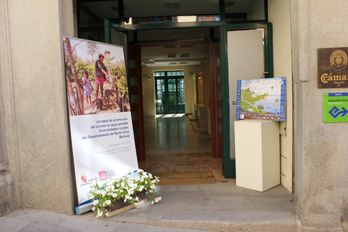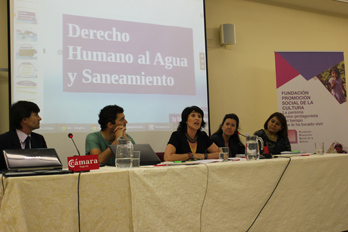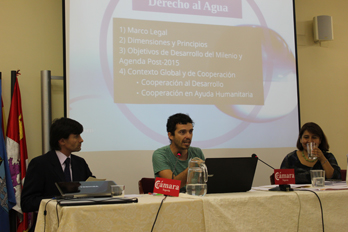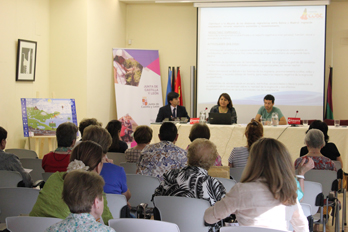Last June 25th, FPSC organized a Seminar “Access to water and sustainable development in the rural communities of the Santa Cruz area (Bolivia)”. The event took place in the Casa del Sello de Paños, Segovia.
The event was organized in order to contribute to expand the knowledge among Spanish society on the most problematic reality of Bolivia when it comes to accessing to drinking water. On the other hand, it showed the need to boost initiatives that help mitigate the problem of scarce water resources, such as the project “Improvement of life conditions of four rural communities in the Santa Cruz department, Bolivia, through drinking water supply”, a project that the FPSC carries out together with the Bolivian Association APEP and funded by the Castilla y León Regional Government.
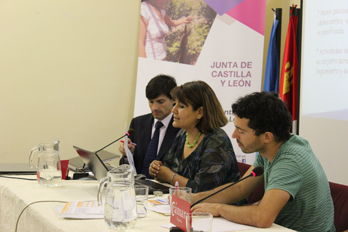
After the words of welcome of the Director General of the FPSC, María Beamonte, and the Territory Manager of the Social Services of Segovia, Carmen Well, the Secretary of the Board of Trustees of the ACOBE Foundation, Pamela Sandra Rodríguez, made a presentation and an analysis of the reality in Bolivia and the rural communities where the project was developed (central plain of the Santa Cruz department) in connection with the Millennium Development Goals (MDGs).
Following her, Juan Luis López Frechilla, a Specialist in Water, Sanitation and Hygiene, spoke about the problem of accessing to water, mainly to drinking water, in the context of the MDGs. Inside these goals, number seven is to highlight “To halve before 2015 the percentage of people without a sustainable access to drinking water and basic sanitation services”.
In order to illustrate the activities carried out in the intervention area and in which way the project has improved the life conditions of 3,939 people in the local communities of La Ripiera, Nueva Esperanza, Villa Enconada and El Carmen, all of them in the Santa Cruz Department, a video produced by the local partner, APEP, was shown to the audience.
The seminar finished with a question/answer session and experience exchanges, so to think and participate in an active way.





